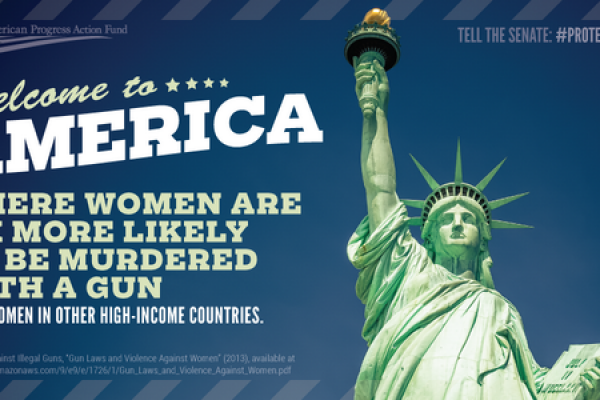Across the country, dangerous people with records of domestic violence, stalking, and aggression have no legal restriction keeping them from obtaining guns. Today, the Senate Judiciary Committee held a hearing to explore the intersection of domestic violence and gun violence. The hearing discussed major loopholes in the landmark Violence Against Women Act (VAWA), which successfully prohibited some convicted domestic abusers from gaining access to firearms. Yet even with the prohibitions in VAWA, abusers who don’t share a home with their intimate partner and abusers convicted of misdemeanor stalking charges are free to keep the weapons they have and to purchase new weapons.
“I am here today to speak for my sister Zina. I speak for Zina and her entire family because Zina is not here to speak for herself.”
Elvin Daniel, and NRA member and gun owner, lost his sister to domestic violence with a firearm and testified today in support of Sen. Amy Klobuchar’s (D-Minn.) S. 1290: Protecting Domestic Violence and Stalking Victims Act of 2013.
The tragic loss of Zina’s life is not an isolated incident. A study about the relationship between domestic violence and gun violence released by the Center for American Progress highlights how deadly this major loophole can be for thousands of women. The statistics are stunning:
- While 2.5 percent of men who are murdered are killed by a female intimate partner, 34 percent of women who are murdered are killed by a male intimate partner.
- Of all the women killed by male intimate partners from 2001-2012, 55 percent are killed with a firearm.
- More women (6,410) in the United States have been killed by a significant other with a firearm from 2001-2012 than U.S. troops have died in the wars in Iraq and Afghanistan.
Read the Full Article

